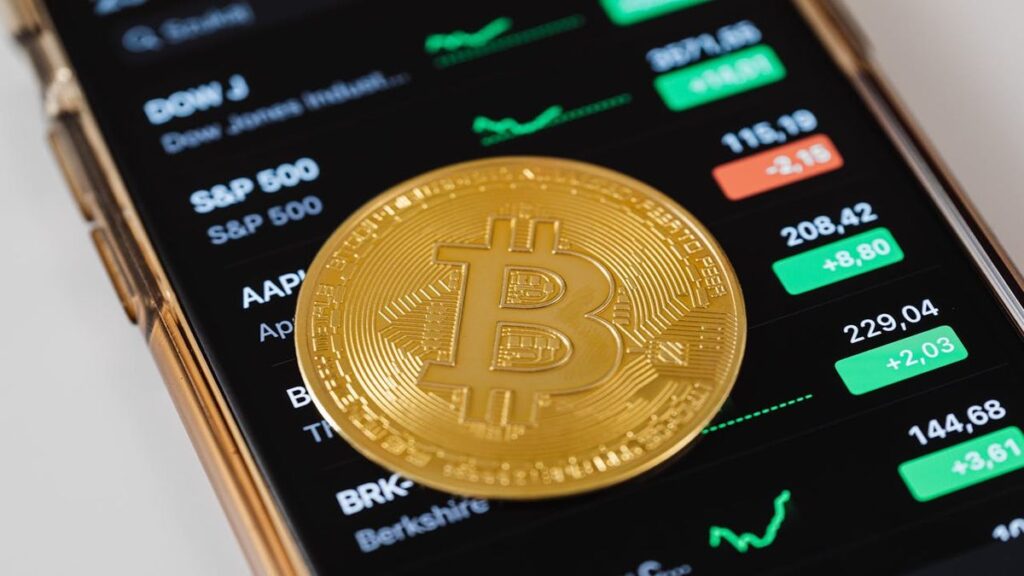Navigating the world of cryptocurrency can seem daunting, but purchasing Bitcoin has become increasingly straightforward for beginners. This guide will walk you through the essential steps to start your Bitcoin investment journey safely and confidently.
Understanding Bitcoin Before You Invest
Before making your first purchase, it’s crucial to understand what Bitcoin is. As a decentralized digital currency, Bitcoin operates without a central bank or single administrator. Its value can fluctuate dramatically, so research and careful planning are key to successful investment.
Selecting a Bitcoin Purchasing Method
You have several options for buying Bitcoin:
- Cryptocurrency exchanges
- Payment apps
- Bitcoin ATMs
- Peer-to-peer platforms
Choosing a Reliable Cryptocurrency Exchange
When selecting an exchange, consider these critical factors:
- Security reputation
- Transaction fees
- User interface
- Available payment methods
- Geographic restrictions
Popular exchanges like Coinbase, Binance, and Kraken offer user-friendly platforms for beginners. Each platform has unique features, so compare them carefully.
Account Verification Process
Most reputable exchanges require identity verification to comply with financial regulations. You’ll typically need to:
- Provide government-issued ID
- Upload a selfie
- Verify your email address
- Confirm phone number
Setting Up Your Digital Wallet
A digital wallet is essential for storing your Bitcoin securely. You have two primary wallet types:
| Wallet Type | Security Level | Accessibility |
|---|---|---|
| Hot Wallet (Online) | Medium | High |
| Cold Wallet (Offline) | High | Low |
Hardware wallets like Ledger and Trezor offer enhanced security for long-term storage.
Making Your First Bitcoin Purchase
Once your account is verified and wallet is set up, follow these steps:
- Link a payment method
- Navigate to the buy section
- Select Bitcoin
- Enter purchase amount
- Confirm transaction
Understanding Transaction Fees
Bitcoin transactions involve network fees, which can vary based on network congestion. Always factor these fees into your investment strategy.
Risk Management Strategies
Cryptocurrency investing carries inherent risks. Consider these risk mitigation techniques:
- Never invest more than you can afford to lose
- Diversify your investment portfolio
- Stay informed about market trends
- Use dollar-cost averaging
Tax Implications
Bitcoin transactions may have tax consequences. Consult a financial advisor to understand reporting requirements in your jurisdiction.
Security Best Practices
Protect your investment by:
- Using two-factor authentication
- Creating strong, unique passwords
- Avoiding public Wi-Fi for transactions
- Regularly updating wallet software
Investing in Bitcoin requires patience, research, and a calculated approach. Start small, learn continuously, and stay informed about the evolving cryptocurrency landscape.
Understanding Bitcoin Exchanges and Platforms
Navigating the world of cryptocurrency can be complex, especially when it comes to choosing the right platform for buying and trading Bitcoin. With numerous exchanges available, understanding their features, security measures, and unique characteristics is crucial for both new and experienced investors.
Key Considerations for Selecting a Bitcoin Exchange
When exploring Bitcoin exchanges, several critical factors will influence your decision. Security should be your top priority, as the digital nature of cryptocurrencies makes them potential targets for cyber threats. Look for platforms that offer:
- Two-factor authentication
- Cold storage options
- Insurance coverage for digital assets
- Regular security audits
Reputation and Track Record
Research the exchange’s history and reputation in the cryptocurrency community. Check user reviews, platform longevity, and regulatory compliance. Well-established exchanges like Coinbase, Binance, and Kraken have built substantial trust through consistent performance and transparent operations.

Fee Structures and Trading Costs
Different platforms have varying fee structures that can significantly impact your investment returns. Compare transaction fees, withdrawal charges, and trading commissions. Some exchanges offer lower fees for higher trading volumes, while others provide discounts for using native platform tokens.
Transaction Fee Comparison
| Exchange | Trading Fee | Withdrawal Fee |
|---|---|---|
| Coinbase | 1.49% – 3.99% | Varies by network |
| Binance | 0.1% – 0.5% | Network dependent |
| Kraken | 0.16% – 0.26% | Competitive rates |
Payment Method Flexibility
Evaluate the payment methods supported by each exchange. Some platforms accept credit cards, bank transfers, PayPal, and even cash deposits. Each method comes with different processing times and associated fees. Consider your preferred payment method and its compatibility with the exchange.
Geographic Restrictions and Compliance
Not all exchanges operate globally. Some platforms have strict geographic limitations due to regulatory requirements. Verify that the exchange serves your country and complies with local cryptocurrency regulations. This ensures smooth transactions and protects your investments from potential legal complications.
User Interface and Trading Tools
The platform’s usability can significantly impact your trading experience. Modern exchanges offer intuitive interfaces, real-time price tracking, advanced charting tools, and mobile applications. For beginners, look for platforms with educational resources and simple navigation.
Advanced Trading Features
- Margin trading
- Futures contracts
- Staking options
- Advanced order types
Liquidity and Trading Volume
High liquidity ensures you can buy or sell Bitcoin quickly without significant price fluctuations. Exchanges with substantial trading volumes typically offer more stable pricing and faster execution of trades. Major platforms like Binance and Coinbase provide extensive liquidity for various cryptocurrency pairs.
Customer Support and Resources
Reliable customer support can be crucial, especially during technical issues or complex transactions. Prioritize exchanges offering multiple support channels like live chat, email, and comprehensive FAQ sections. Some platforms provide dedicated account managers for high-volume traders.
By carefully evaluating these factors, you can select a Bitcoin exchange that aligns with your investment goals, risk tolerance, and trading preferences. Remember that diversification and continuous learning are key strategies in the dynamic world of cryptocurrency trading.
Cryptocurrency Wallet Selection and Security Measures
When venturing into the world of digital assets, choosing the right cryptocurrency wallet and implementing robust security measures is crucial for protecting your investments. Your wallet serves as a digital vault, storing and managing your cryptocurrencies with varying levels of accessibility and protection.
Understanding Wallet Types
Cryptocurrency wallets come in several distinct categories, each offering unique advantages and potential risks. Software wallets, which include desktop and mobile applications, provide convenient access but may be more vulnerable to online threats. Hardware wallets, physical devices that store private keys offline, offer superior security by keeping your assets disconnected from potentially compromised networks.
Key Wallet Selection Criteria
- Security features and encryption protocols
- Support for multiple cryptocurrencies
- User interface and ease of use
- Compatibility with trading platforms
- Backup and recovery options
Essential Security Strategies
Protecting your digital assets requires a multi-layered approach. Begin by implementing strong, unique passwords that combine uppercase and lowercase letters, numbers, and special characters. Enable two-factor authentication whenever possible to add an extra layer of protection beyond traditional password security.
Advanced Protection Techniques
- Use hardware wallets for significant cryptocurrency holdings
- Create multiple backup copies of private keys
- Store backup information in secure, separate physical locations
- Regularly update wallet software
- Utilize cold storage methods for long-term asset preservation
Risk Mitigation Approaches
Diversifying your storage strategy can significantly reduce potential vulnerabilities. Consider maintaining multiple wallets for different purposes: a hardware wallet for long-term storage, a software wallet for frequent transactions, and potentially a small amount in online platforms for immediate trading needs.
Identifying Potential Threats
Cryptocurrency investors must remain vigilant against various security risks. Phishing attempts, malware, and social engineering tactics can compromise your digital assets. Always verify transaction details, avoid clicking suspicious links, and maintain updated antivirus protection on all devices used for cryptocurrency management.
Technical Considerations
When selecting a wallet, evaluate technical specifications carefully. Some wallets offer superior encryption, while others provide seamless integration with decentralized exchanges. Consider factors like transaction speed, fee structures, and compatibility with different blockchain networks.
Recommended Security Practices
- Never share private keys or recovery phrases
- Use dedicated devices for cryptocurrency transactions
- Implement network isolation techniques
- Regularly monitor account activity
- Stay informed about emerging security technologies
Future-Proofing Your Digital Assets
As cryptocurrency technologies evolve, staying informed about emerging security innovations becomes paramount. Follow reputable cryptocurrency forums, attend virtual conferences, and continuously educate yourself about the latest protective measures and wallet technologies.
Remember that no single security strategy is infallible. Combining multiple protective techniques, maintaining situational awareness, and adopting a proactive approach to digital asset management will help safeguard your investments against potential threats.
Bitcoin Purchase Methods: Comparing Payment Options
Credit and Debit Card Transactions
Credit and debit cards represent one of the most straightforward methods for purchasing Bitcoin. Major cryptocurrency exchanges like Coinbase and Binance support direct card payments, allowing instant transactions. However, investors should be aware of potential drawbacks:
- Higher transaction fees compared to bank transfers
- Potential cash advance charges from credit card companies
- Immediate purchase capabilities
- Relatively quick verification processes
Bank Transfer Options
Bank transfers offer lower transaction fees and typically have higher purchase limits. Wire transfers and ACH (Automated Clearing House) methods provide secure cryptocurrency acquisitions. Users can expect:
- Lower processing fees
- Higher transaction limits
- Enhanced security protocols
- Slightly longer processing times
Digital Payment Platforms
Modern digital payment platforms have emerged as convenient Bitcoin purchasing channels. Services like PayPal, Venmo, and Cash App now integrate cryptocurrency purchasing directly into their applications. These platforms offer:
- User-friendly interfaces
- Instant transaction capabilities
- Lower entry barriers for new investors
- Integrated wallet services
Peer-to-Peer Marketplaces
Peer-to-peer platforms like LocalBitcoins provide alternative purchasing mechanisms. These marketplaces connect individual buyers and sellers, offering diverse payment methods including:
- Cash transactions
- Online payment systems
- Gift cards
- Bank transfers
Cryptocurrency ATMs
Bitcoin ATMs have gained popularity as accessible purchasing points. These machines allow direct cryptocurrency purchases using cash or debit cards. Key considerations include:
- Convenient physical locations
- Instant Bitcoin acquisition
- Higher transaction fees
- Limited transaction amounts
Critical Security Considerations
Regardless of the chosen payment method, investors must prioritize security. Recommended practices include:
- Using reputable exchanges
- Enabling two-factor authentication
- Verifying platform legitimacy
- Maintaining strong, unique passwords
Fee Comparison Insights
Understanding transaction fees is crucial for informed Bitcoin purchasing. A typical comparative breakdown might look like:
| Payment Method | Average Fee Range |
|---|---|
| Credit Card | 3.5% – 5% |
| Bank Transfer | 0.5% – 1.5% |
| Peer-to-Peer | 1% – 3% |
| Cryptocurrency ATM | 5% – 10% |
Selecting the most appropriate Bitcoin purchasing method depends on individual preferences, risk tolerance, and financial goals. By understanding the nuances of each payment option, investors can make informed decisions that align with their investment strategies.
Continuous learning and staying updated on emerging cryptocurrency technologies will empower investors to navigate this dynamic financial landscape effectively.
Legal and Tax Considerations for Bitcoin Investors
As cryptocurrency gains mainstream popularity, understanding the complex legal and tax landscape becomes crucial for Bitcoin investors. The regulatory environment surrounding digital assets continues to evolve, presenting both opportunities and challenges for individuals looking to invest and manage their Bitcoin holdings.
Tax Reporting Requirements
The Internal Revenue Service (IRS) considers Bitcoin and other cryptocurrencies as property, not currency. This classification means every Bitcoin transaction could potentially trigger a taxable event. Investors must carefully track and report capital gains or losses from cryptocurrency transactions, including:
- Selling Bitcoin for fiat currency
- Trading Bitcoin for other cryptocurrencies
- Using Bitcoin to purchase goods or services
Capital Gains Taxation
When you sell or exchange Bitcoin, the difference between your purchase price and selling price determines your capital gains tax liability. Short-term capital gains (for assets held less than one year) are taxed at ordinary income rates, while long-term gains benefit from reduced tax rates ranging from 0% to 20%, depending on your overall income.
Calculating Cost Basis
Accurate record-keeping is essential for determining your cost basis. Methods like First-In-First-Out (FIFO) or specific identification can help calculate precise tax obligations. Many investors use specialized cryptocurrency tax software to streamline this complex process.
Regulatory Compliance
Bitcoin investors must navigate a complex regulatory landscape that varies by jurisdiction. Federal and state regulations require compliance with anti-money laundering (AML) and know-your-customer (KYC) guidelines. Cryptocurrency exchanges must report transactions exceeding certain thresholds, and investors are obligated to maintain transparent financial records.
Reporting Thresholds
The IRS mandates reporting cryptocurrency transactions on Form 8949 and Schedule D. Exchanges typically issue 1099 forms for significant trading activity, making it crucial to maintain comprehensive transaction logs.
International Considerations
For investors with international Bitcoin holdings, additional complexities arise. Foreign account reporting requirements, such as the Foreign Bank Account Report (FBAR) and Form 8938, may apply to substantial overseas cryptocurrency investments.
Offshore Reporting
Investors must carefully assess their global Bitcoin holdings and comply with international tax reporting standards. Failure to report can result in significant penalties and potential legal consequences.
Risk Management Strategies
Prudent Bitcoin investors should consider several risk mitigation approaches:
- Consult with tax professionals specializing in cryptocurrency
- Maintain detailed transaction records
- Understand local and federal tax regulations
- Utilize professional tax preparation services
Professional Guidance
Given the rapidly changing regulatory environment, seeking advice from cryptocurrency tax specialists can help investors navigate complex legal requirements and minimize potential tax liabilities.
Emerging Regulatory Landscape
The cryptocurrency regulatory framework continues to develop, with increasing governmental scrutiny and potential future legislation. Investors must stay informed about potential changes that could impact their Bitcoin investments and tax obligations.
By understanding these legal and tax considerations, Bitcoin investors can make informed decisions, maintain compliance, and optimize their investment strategies. Proactive planning and thorough documentation remain key to successfully managing cryptocurrency investments within the current regulatory framework.
Conclusion
Embarking on your Bitcoin investment journey requires careful planning, education, and strategic decision-making. By understanding the fundamental steps of purchasing cryptocurrency, you’re positioning yourself to navigate the dynamic digital asset landscape with confidence.
The key to successful Bitcoin investing lies in thorough research, selecting reputable exchanges, prioritizing robust security measures, and maintaining a comprehensive understanding of legal and financial implications. Remember that cryptocurrency investments carry inherent risks, and it’s crucial to only invest amounts you can afford to lose.
As the digital currency ecosystem continues to evolve, staying informed about market trends, technological advancements, and regulatory changes will be instrumental in making sound investment decisions. Diversifying your investment portfolio, implementing strong security protocols for your digital wallet, and maintaining a long-term perspective can help mitigate potential volatility.
Beginner investors should start with small, manageable investments and gradually expand their cryptocurrency knowledge. Utilize educational resources, follow reputable cryptocurrency news platforms, and consider consulting financial advisors who specialize in digital assets.
Your Bitcoin investment journey is not just about purchasing a digital asset, but about understanding a transformative technology that’s reshaping global financial systems. Approach your investment with patience, diligence, and a commitment to continuous learning.
Ultimately, successful Bitcoin investing requires a balanced approach of technical understanding, risk management, and strategic thinking. By following the steps outlined in this guide and remaining adaptable, you’ll be well-equipped to explore the exciting world of cryptocurrency investment.
Read Also Understanding Blockchain Technology: The Future Of Finance
Was this helpful?




Leave Feedback